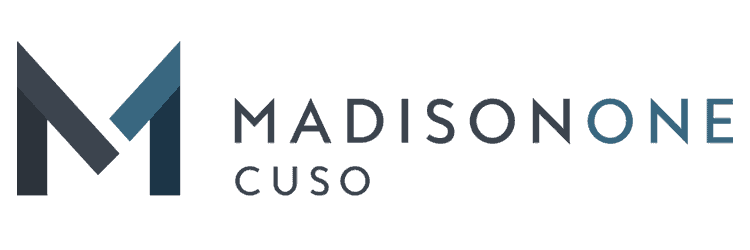 https://m1cuso.com/wp-content/uploads/2025/03/Main-Power-Plant-Energy-ideas-And-energy-saving.jpg
1250
2000
AbstraktMarketing
/wp-content/uploads/2022/09/logo-madione-1.png
AbstraktMarketing2025-03-27 11:28:322025-03-27 11:28:362025 Energy Sector Trends We’re Anticipating
https://m1cuso.com/wp-content/uploads/2025/03/Main-Power-Plant-Energy-ideas-And-energy-saving.jpg
1250
2000
AbstraktMarketing
/wp-content/uploads/2022/09/logo-madione-1.png
AbstraktMarketing2025-03-27 11:28:322025-03-27 11:28:362025 Energy Sector Trends We’re AnticipatingDetermining Your SBA Loan Eligibility
Understanding which type of SBA loan is best for your business may be difficult, but with the right insight, you can find which financial option best fits you. In this comprehensive guide, we aim to provide a thorough understanding of what an SBA loan is, your eligibility for an SBA loan, and strategies to increase your chances of obtaining one. Whether you are a seasoned business owner or a novice entrepreneur, this guide is designed to help you navigate the complexities of SBA loan eligibility.
What Are SBA Loans?
An SBA loan is a business loan offered by lenders and backed by the U.S. Small Business Administration (SBA). The SBA guarantees a portion of the loan to the lender, which enables small businesses that would not otherwise qualify for conventional loans to obtain financing.
SBA loans feature low-interest rates and extended repayment terms. The loans can be used for various business purposes, including working capital, equipment, inventory, and commercial real estate.
Understanding the Types of SBA Loans
There are several main types of SBA small business loans, including:
- SBA 7(a) Loan – The SBA’s primary and most flexible loan program
- SBA Express Loan – Fast turnaround loans up to $350,000
- SBA 504 Loan – For major assets like commercial real estate
- SBA Microloan – Loans up to $50,000 from non-profit lenders
For the sake of this guide, we’ll primarily focus on SBA 7(a) loans.
The Eligibility Criteria for SBA Loans
Your eligibility can be determined with the following criteria:
1. Business Size and Nature
To qualify for an SBA loan, a business must meet the SBA’s definition of a “small” business for its respective industry. This is measured by the number of employees or average annual receipts.
The business must be an eligible type, which includes for-profit businesses, agricultural enterprises, most private non-profits, startups, and franchises.
2. Credit History Evaluation
The SBA reviews the applicant’s personal and business credit histories as part of the eligibility process. Good credit increases the chances of loan approval.
However, if certain conditions are met, the SBA may provide financing to applicants with limited credit history or blemishes.
3. Financial Stability and Operating History
Lenders analyze the business’s financial strength based on income statements, balance sheets, cash flow, and financial projections. A track record of profitability improves eligibility.
Startups and new businesses without operating history may qualify for certain SBA loans like the SBA 7(a) if they submit a solid business plan.
Naturally, to quality for 7(a) loan assistance, business must also:
- Operate for profit
- Be considered a small business, as defined by SBA
- Be engaged in, or propose to do business in, the United States or its possessions
- Be able to demonstrate a need for a loan
- Use the funds for a sound business purpose
- Not be delinquent on any existing debt obligations to the U.S. government
- Be creditworthy and reasonably assure repayment of the loan
How to Determine Your SBA Loan Eligibility
Speaking with a government-backed lender is the best way to determine if you meet the SBA’s eligibility standards, like Madison One CUSO. These lenders are experts in the various loan programs and requirements.
Provide the lender with documents like business and personal financial statements, business plans, and tax returns. The lender will review your information and give guidance on which loan programs you qualify for.
Unsure if you qualify for an SBA loan? We can help. Email your business address to Madison One for eligibility confirmation.
"*" indicates required fields
How SBA 7(a) Loans Can Be Used
Let’s explore the myriad ways in which SBA 7(a) loans can be applied to fuel business growth, navigate challenges, and seize opportunities:
1. Startup Financing
SBA 7(a) loans can provide the necessary capital for new businesses to cover startup costs, including equipment purchases, leasehold improvements, and initial operating expenses. This option is ideal for entrepreneurs looking to turn their innovative ideas into thriving businesses.
2. Working Capital Injection
For businesses facing temporary cash flow gaps or seasonal fluctuations, SBA 7(a) loans can provide a lifeline by offering working capital to cover day-to-day expenses, payroll, and inventory costs.
3. Expansion and Renovation
Growing businesses often need to expand their physical space or renovate existing facilities. SBA 7(a) loans can fund construction, leasehold improvements, or purchasing new property to accommodate business growth.
4. Equipment and Inventory Purchases
Whether upgrading machinery, purchasing vehicles, or restocking inventory, SBA 7(a) loans can be tailored to meet your equipment and inventory financing needs.
5. Business Acquisitions
Entrepreneurs looking to acquire an existing business can use these loans to cover the purchase price, facilitating a smooth transition and ensuring continued operations.
6. Debt Refinancing
Businesses burdened with high-interest debts can benefit from SBA 7(a) loans to refinance existing loans, potentially lowering interest rates and reducing monthly payments.
7. Exporting Initiatives
For businesses engaged in international trade, SBA 7(a) loans can assist in funding export-related activities, such as working capital for fulfilling overseas orders or adapting products for foreign markets.
Key Takeaways
- Understanding SBA loan eligibility is crucial for selecting the right financing option tailored to your business needs.
- SBA loans, backed by the Small Business Administration, offer low-interest rates and long repayment terms for various business purposes.
- SBA 7(a) loans, among other types, are versatile options with eligibility criteria including business size, credit history, and financial stability.
- Consulting government-backed lenders, like Madison One CUSO, is key to determining eligibility and navigating SBA loan programs.
Secure Your Financial Future With Madison One
Do you need a loan for your small or rural business? Look no further than Madison One CUSO. We are a group of credit unions and professionals dedicated to helping struggling borrowers access affordable loans. With over a decade of experience in government-guaranteed lending, we understand the loan application process and can help you navigate the confusing and time-consuming paperwork to ensure a successful loan closure. We have worked closely with state government agencies and top loan providers, closing over 200 loans totaling more than $700 million!
Unlike other lenders, we offer unparalleled support, expertise, and lending capabilities. We are a leading USDA B&I lender and can structure and close any type of USDA or SBA loan. No matter where you’re located or what industry you’re in, we can help you secure the financing you need.
We’d love to help finance your business. Give us a call.





